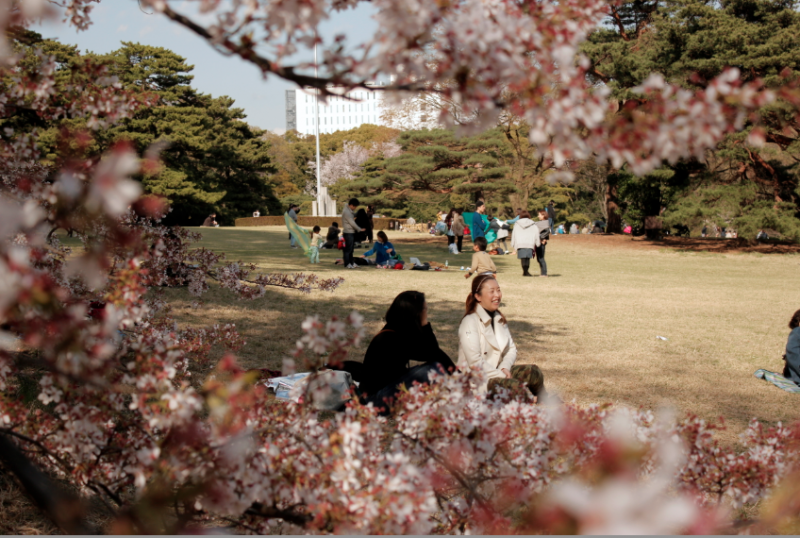Musings From My Motherland: Mastering The Art Of 'Janglish'

The weather has been nothing but amazing: Japan has four very distinct seasons, of which spring is perhaps the most beautifully fleeting. Cherry blossoms were in full-bloom to welcome our study abroad group, with locals gathering beneath the tree for picnics and drinks, known as "hanami."
During the two weeks in which I enjoyed the weather, went through multiple orientations and settled into my cozy dormitory, I became acquainted with other study abroad program participants. There's a diverse group of students from American colleges all across the nation, each with their own particular purpose for being in Japan. It's interesting hearing others talk about what attracts them to the Japanese language and culture. They've given me new insights and have made me gain interest in areas of my own country that I had never even considered.
But perhaps the biggest change I have experienced from being in Tokyo is my language.
I'm a fluent Japanese native speaker, so it might sound odd that my language mannerisms have changed just by living a few weeks in my own birthplace. I, too, thought that I would be able to distinctly separate which language to use: Japanese when speaking to other Japanese people, English when speaking to my friends in the study abroad program.
The outcome? Completely different.
I've come to master the art of what I dub "Janglish," which, as the name suggests, is a mix of English and Japanese.
Toward the beginning of my stay in Tokyo, I spoke strictly in English to my friends in the program. It was only natural, as we were just getting to know one another. But as time went on and we began to understand each other better, I realized that many were very open - some very enthusiastically - to speaking with me in Japanese. So I began speaking to them in Japanese, to see how they would respond. Many replied back in the same language, and often times the dialogue continued in Japanese for a while.
Eventually our conversations began to consist of a mixture of the two very different languages. "Good mornings" were replaced with casual ohayou among me and other program participants that lived in the dorms. "Can you wait a little bit" became "Can you chotto matte." I've even begun to exchange Japanese texts with some new friends, who reply back in the same language.
I would definitely not be speaking in the same manner back home, where English would be my primary language among my friends at USC. My native language rarely gets spoken in Los Angeles, except for when I converse with other Japanese students at SC. I thought the same would apply here with other American study abroad students: I expected to speak only in English with them, but I was wrong. With many students studying here to perfect their language, conversing casually in Japanese and English is the norm. "Janglish" just might be our de-facto language.
The mixture of languages did leave me a bit confused at first. I felt that somehow, by being in Japan and interacting with the locals, I would feel more and more Japanese. Instead, because of my upbringing away from my motherland for so long, I feel even more "American." But my passport cover says otherwise, and I know for a fact that back in the States, I feel proud to be Japanese. So what am I? I have felt as if I am stuck in a perpetual cycle of identity crisis, never knowing which "side" I really belong to.
But perhaps, as my development of "Janglish" goes, I don't really "belong" in one over the other. I've realized that it makes no sense in limiting myself to just one particular side, when I can freely cross back and forth at my will. Maybe I'm just stuck in the limbo between Japan and America, and this identity crisis thing is something I'll never really find the answer to for the rest of my life. I found this particularly daunting before I left for my study abroad. Will I ever find out which "side" I belong to? Am I Japanese, or have I become too "American" to call myself that?
But that doesn't seem like such a bad dilemma, after all.
Track Shoko's journey in her new column, "Musings From My Motherland." Reach Columnist Shoko Oda here.



